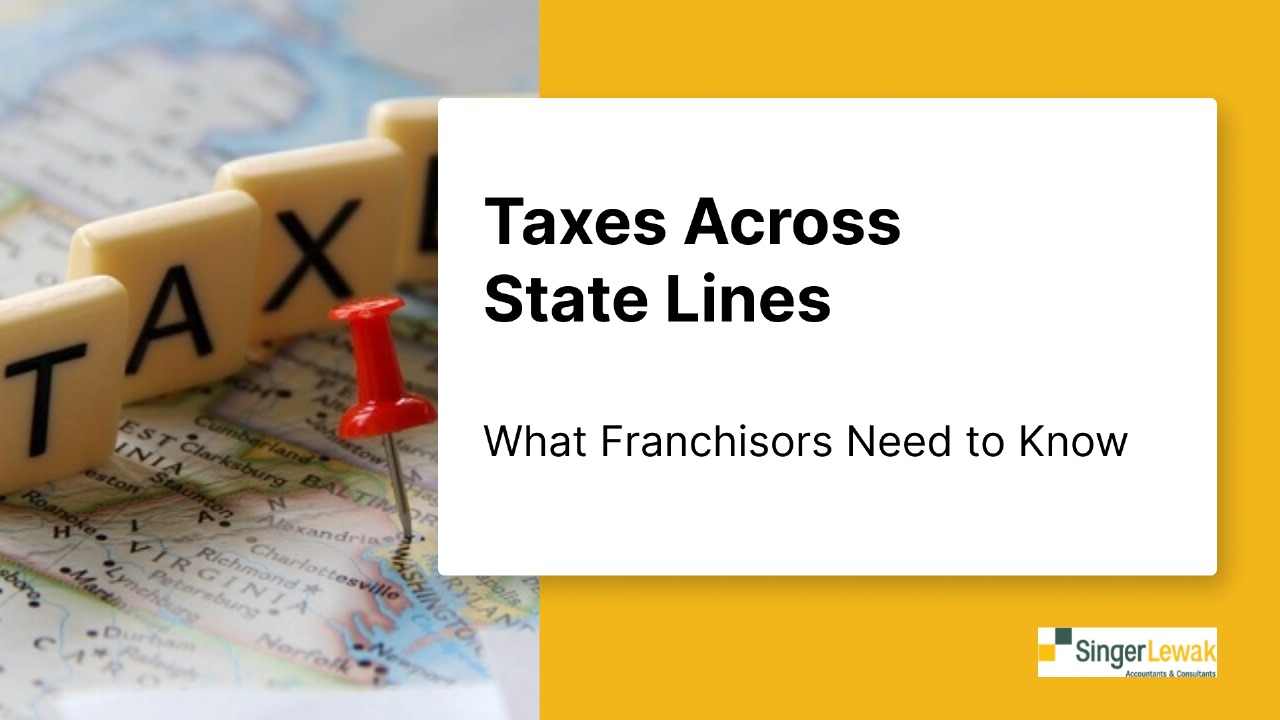Taxes Across State Lines: What Franchisors Need to Know
Expanding a franchise system beyond your home state is an exciting milestone—but it also raises important tax considerations. Growth across state lines doesn’t just mean registering your franchise in new markets. It also means navigating how each state claims its share of your income.
Here are the key issues franchisors should understand as they grow:
State Taxes Aren’t Uniform
Every state has its own rules for taxing business income and activity. Many are aggressive in asserting tax obligations on companies earning revenue from their residents—even if your headquarters is located elsewhere. For franchisors, this commonly comes into play with royalty streams: if your franchisees operate in multiple states, those states will often expect you to file returns there.
Economic Nexus Has Changed the Rules
Historically, states taxed only businesses with a physical presence within their borders. That’s no longer the case. Many states now apply economic nexus rules, meaning if you earn over a certain dollar amount or number of transactions in the state, you may have a filing requirement—even without offices or employees there. For franchisors, royalties and franchise fees can trigger these thresholds sooner than expected.
Franchise Fees vs. Royalties
Initial franchise fees and ongoing royalties can be treated differently for tax purposes. For state apportionment, most states now use market-based sourcing, which attributes royalty income to where the franchisee operates. A smaller number still use cost-of-performance sourcing, which may allocate income back to the franchisor’s location. Knowing the difference can materially affect your tax footprint.
Losses Don’t Always Travel Across States
Start-up losses in your home state may not offset profits in a new state. Many states require taxable income to be calculated only on activity within their borders. That means you could face taxable profits in an expansion state—even while your overall system is still carrying forward losses elsewhere.
Beware of Double Taxation
Without proper planning, it’s possible to be taxed on the same income in multiple states. While most states offer credits or relief provisions to avoid double taxation, they only apply if you file correctly and on time.
Build Tax Planning Into Your Expansion Strategy
Tax compliance may not be glamorous, but it’s far easier to prepare in advance than to fix issues after the fact. As you plan new territories, include a tax strategy in your growth roadmap. Advisors with experience in franchising and multi-state taxation can help you stay compliant, avoid unnecessary costs, and protect your profitability.
Bottom Line
Crossing state lines opens doors for your franchise system—but it also brings new tax obligations. By understanding how states tax fees, royalties, and losses, and by proactively planning for compliance, you can expand with confidence, reduce surprises, and keep more of your hard-earned growth.



